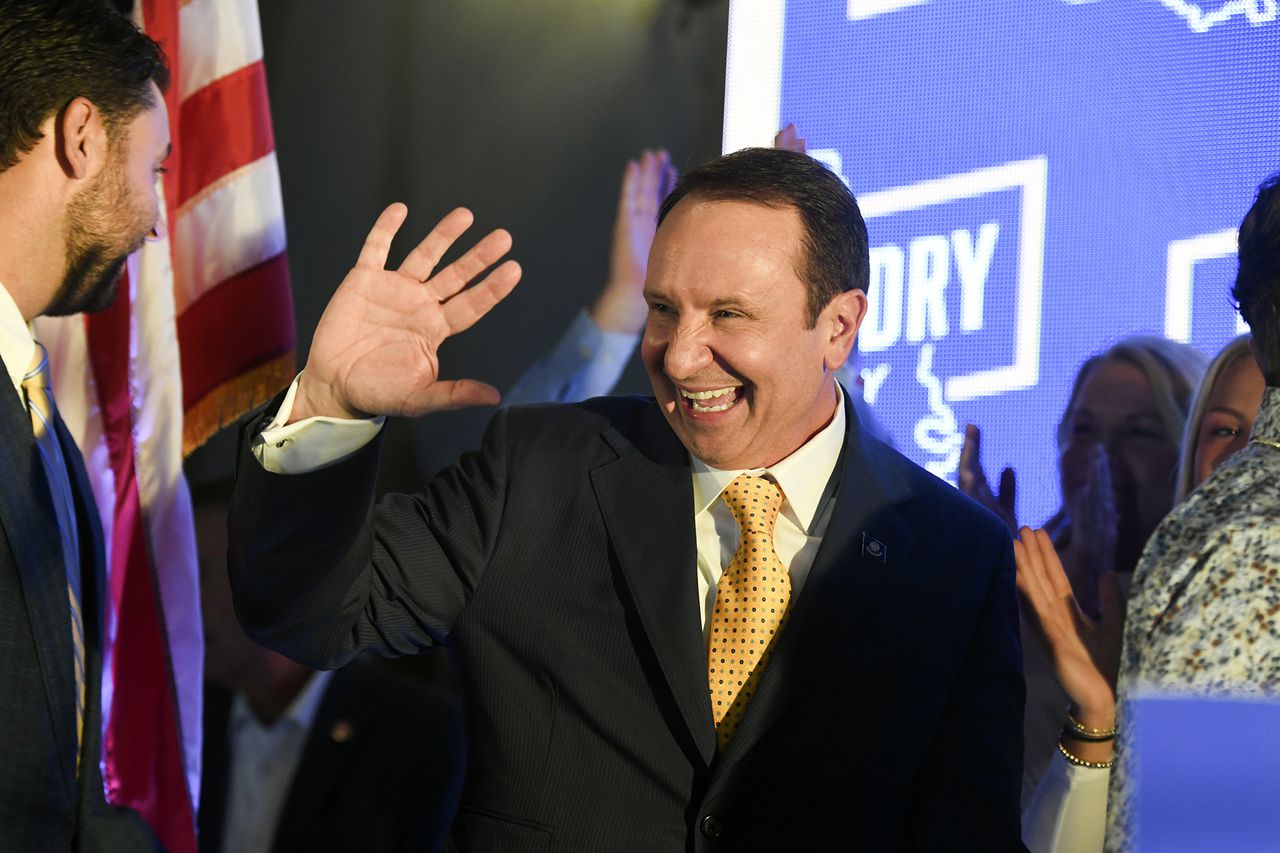After Jeff Landryâs low-turnout Louisiana win, Black voters refuse to take all the blame
Black Louisianans faced criticism for record-low voter turnout in an election that flipped the Louisiana legislature Saturday and ultimately led to the election of Republican attorney general Jeff Landry as governor.
But that narrative ignores the lack of unity and funding from within the state Democratic Party and a history of racial gerrymandering, according to voters like Gabrielle Perry.
“Jeff Landry has been dominating the news cycle and making national headlines as Attorney General for years,” Louisiana resident Gabrielle Perry said. “This election, it’s like Democrats didn’t even try.”
Perry voted on Saturday for Landry’s lone Democratic opponent, Shawn Wilson, who garnered just 25.96 percent of the vote, exit polling showed. Some Louisiana Democrats as well as pollsters outside of the state were disappointed with the result and called out Black voters who showed low turnout, sparking debate on social media.
The criticism infuriated Perry, who said the idea that community members and Democrats were too lazy or apathetic to vote fails to acknowledge the lack of unity and funding from within the Democratic Party and a history of racial gerrymandering in the state.
Republicans outspent Democrats in the month leading up to the gubernatorial election, shelling out $1.2 million in funding for Landry, while Democrats spent just $28,000 on Wilson, the newcomer among two incumbents.
Last week, the 5th U.S. Circuit Court of Appeals heard arguments in a voting rights case that could allow Louisiana using Republican-backed congressional maps that suppress the Black vote.
“So, now we have Jeff Landry,” Perry said. “He’s coming with vengeance and, rightfully, people are scared.
Trump’s endorsement and backing from other MAGA Republicans helped Landry push legislation that further marginalized communities bearing the brunt of lax environmental regulations, criminalization of abortion access, anti-trans legislation and a so-called “tough-on-crime” approach to sentencing in his time as attorney general.
Advocates decried these measures, noting their disproportionate impacts on Black Louisianans.
For instance, Landry backed a measure that would make some confidential juvenile court records public for three of Louisiana’s predominantly Black parishes. He also blocked mass clemency efforts for the state’s 57 death row inmates, 67 percent of whom are Black.
“It’s a blow to the Black community and something we need to take very seriously,” Bruce Reilly, deputy director at Voters Organized to Educate (VOTE) said. Landry vows to address the state’s high crime rate as his first order of business.
Following the fall of Roe v. Wade, Landry targeted three of the state’s abortion clinics and threatened to jail abortion providers for up to 15 years, a decision that would have fallen hardest on women of color, who make up 72 percent of people seeking abortions in Louisiana.
“We’re going to potentially learn a harsh lesson that a lot of us thought we learned through the 80s to 2000s, where we see a bipartisan push to overly criminalize things and be overly punitive,” Reilly said.
Climate-change denial drives Landry’s ongoing push to thwart the federal government’s concerted efforts to address environmental racism in an area known as Cancer Alley, an 85-mile stretch of industrial plants overtaking historic Black communities in eight Louisiana parishes. Residents there are exposed to high rates of toxic air pollution linked to cancer. Landry has long claimed climate change is a “hoax.”
Also, as early as 2012, Landry aggressively fought against LGBTQ+ protections and more recently has pushed through bans on gender-affirming care, which civil-rights advocates say risks the health and safety of LGBTQ citizens.
“We can’t expect to get the wins we were getting,” Reilly said and “We know there’s going to be a shift to the right.”
